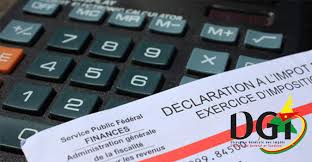
How to declare tax
Sure! Here's a quick blog post on how businesses can declare their taxes in Cameroon, written in a practical and straightforward style suitable for SMEs:
How to Declare Your Business Taxes in Cameroon (Without Losing Your Mind)
Running a business in Cameroon is tough enough — from keeping customers happy to managing stock and staff. But one thing you can't ignore is tax declaration. Done right, it keeps your business legal and gives you peace of mind. Done wrong… well, let’s not go there.
Here’s a quick, no-fluff guide on how to declare your business taxes in Cameroon:
1. Register Your Business with the Tax Office
Before anything else, your business must be legally registered with the tax authorities. Head to your nearest Centre Divisionnaire des Impôts (CDI) or Centre Régional des Impôts (CRI) with:
-
A copy of your business registration (RCCM)
-
Taxpayer identification number (NUI)
-
Lease agreement or location plan
-
Copy of the promoter’s ID
Once registered, you’ll be placed under a tax regime depending on your size: lump sum (for very small businesses), simplified, or real regime.
2. Know What Taxes You Owe
Businesses in Cameroon typically deal with:
-
Business license tax (patente) – paid yearly
-
Value Added Tax (VAT) – if you're earning over 50 million XAF annually
-
Corporate tax or personal income tax – based on your net profit
-
Withholding tax – for certain payments like rent, consultants, etc.
-
CNPS (social security) – for employees
3. Keep Proper Records
Yes, that means:
-
Daily sales records
-
Purchase receipts
-
Employee salary slips
-
Inventory and expense tracking
Pro tip: A simple POS system can save you hours of stress when it’s tax time.
4. Monthly and Annual Declarations
Depending on your regime:
-
Monthly: Declare VAT, salary tax, and withholding tax via the e-tax platform (www.etax.dgi.cm)
-
Annually: File your balance sheet, income statement, and tax return
Deadlines matter. Most monthly taxes are due by the 15th of each month. Annual tax returns are usually due by March 15 of the following year.
5. Use the e-Tax Platform
The government’s online platform lets you:
-
Declare taxes
-
Pay online via bank transfer or MTN/Orange Money (depending on region)
-
Download payment receipts
No more queuing under the sun.
Final Tip: Get Help If You Need It
If you’re not sure where to start, talk to a tax consultant or accountant. It’s cheaper than a penalty from the tax office.
Bonus: Automate It
Tools like TCPoS or other smart POS systems can help auto-generate tax reports, track expenses, and keep your accounting clean. That means less time with spreadsheets and more time growing your business.
Got questions about declaring your taxes or automating your records? Drop them in the comments or send us a message — we’re here to help!